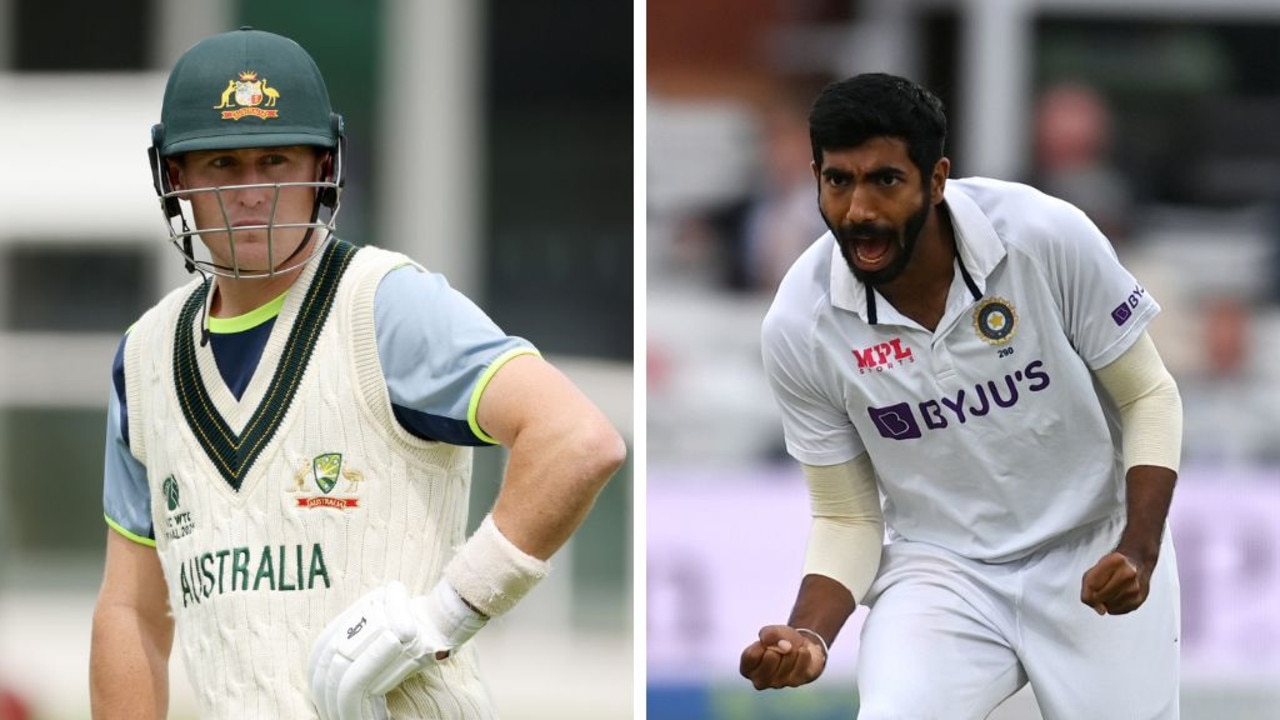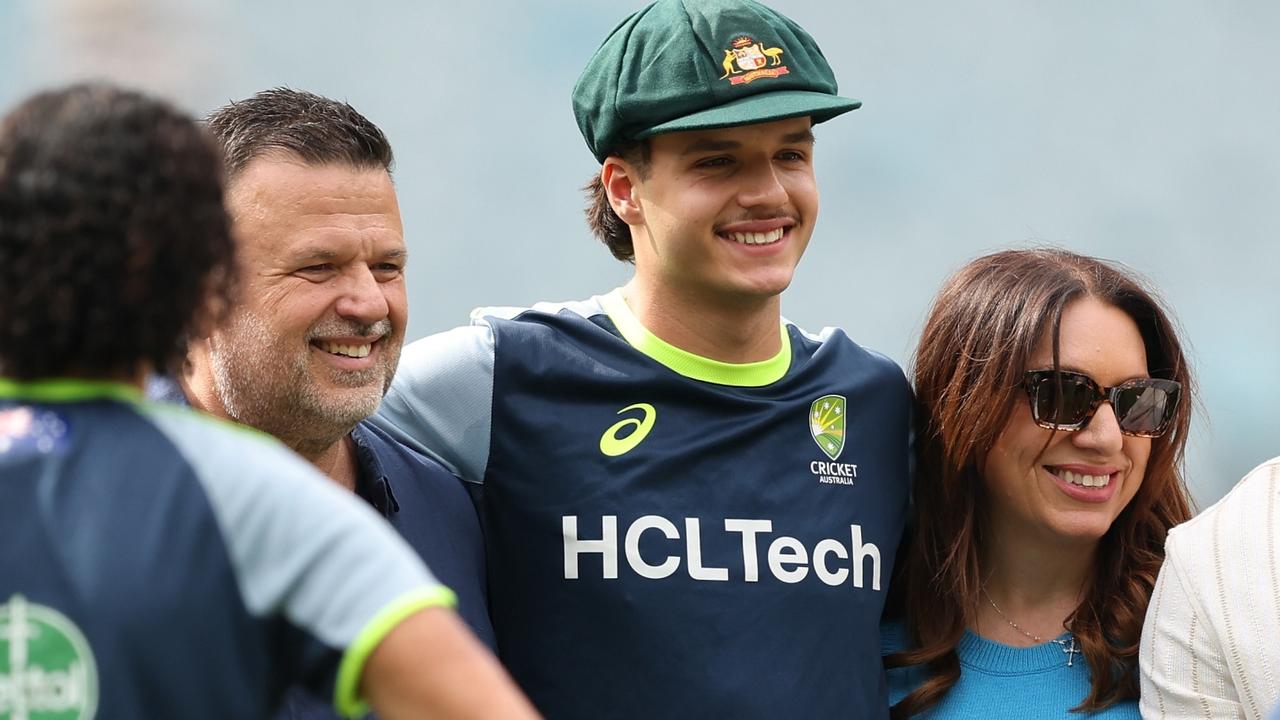Boxing Day Test: Usman Khawaja’s black armband protest not approved, reprimanded by ICC
Usman Khawaja’s silent protest in Perth has run afoul of the ICC, with the Aussie opener punished for wearing a black armband without permission.
Cricket
Don't miss out on the headlines from Cricket. Followed categories will be added to My News.
Usman Khawaja has been charged for wearing a black armband against Pakistan without seeking permission.
The ICC confirmed to this masthead on Thursday night that the Australian opener had been charged for the move, which was done to support Palestinians in Gaza.
“Usman Khawaja has been charged for breaching Clause F of the Clothing and Equipment Regulations, which can be found on the ICC Playing Conditions page. The sanctions for a breach of the regulations are outlined in Appendix 2,” an ICC spokesperson said.
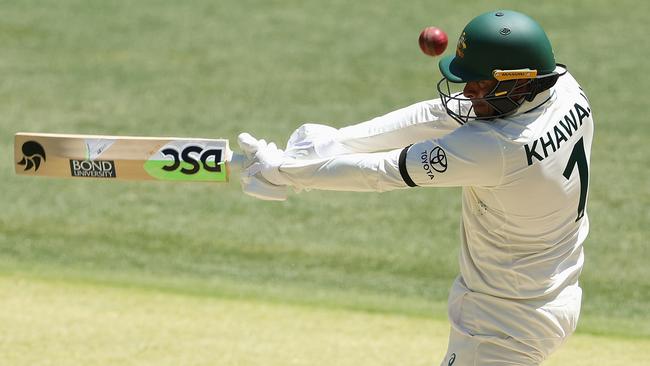
“Usman displayed a personal message (arm band) during the 1st Test Match against Pakistan without seeking the prior approval of Cricket Australia and the ICC to display it, as required in the regulations for personal messages. This is a breach under the category of an “other breach” and the sanction for a first offence is a reprimand.”
Khawaja facing fresh punishment over pro-Palestine protest
Usman Khawaja did not have ICC approval to wear a black armband during the first Test to mark the plight of Palestinians in Gaza, leaving him open to sanctions from the governing body.
Having been told he would not be allowed to wear pro-Palestinian slogans on his shoes during the match as he had hoped to do, Khawaja instead chose to don a black armband throughout the game.
Black armbands are worn routinely by players to mark personal or cricketing bereavements, however in order to do so they must have approval from both their home board and the ICC’s cricket operations department.
There are prohibitions on wearing an item that has a “political, religious or racial cause.”
After repeated inquiries over the space of a week, the ICC confirmed to this masthead on Wednesday night that Khawaja had not been given approval to wear the armband during the Test between Australia and Pakistan in Perth.
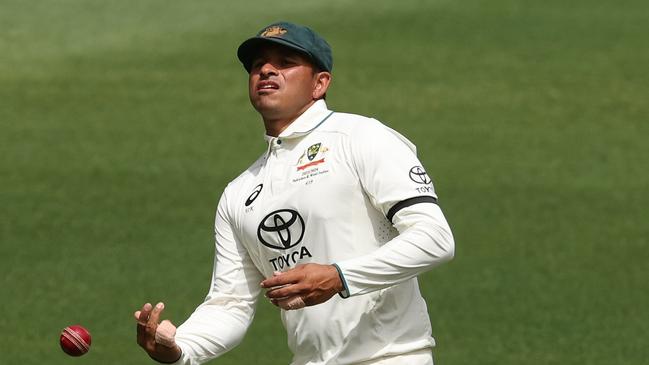
The ICC would not comment on whether the opener would be penalised for wearing the armband without a green light, although the starting point for any sanctions would be a reprimand, meaning Khawaja is not in any serious doubt of missing the Boxing Day Test.
Khawaja, Australia’s first Muslim Test cricketer, had hoped to wear shoes with the messages “Freedom is a human right” and “All lives are equal” written in the Palestinian colours of black, green and red.
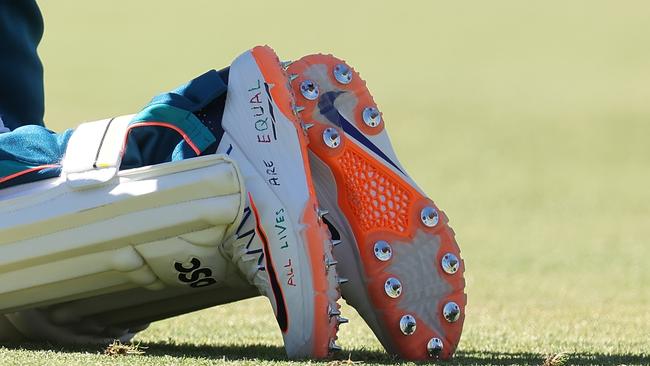
He has stressed that his views are purely humanitarian and non-political.
While blocked by the governing body, he has indicated he will push to do so in future matches, having worn the shoes in the nets in the lead-up to the Test at Perth Stadium.
The ICC’s clothing and equipment regulations state that: “In determining whether a message is for a ‘political, religious or racial cause’, the starting point is that the ICC and its members acknowledge and agree that cricket should be used as a tool to bring people and communities around the world together and not as a platform to draw attention to potentially divisive political issues, rhetoric or agendas.
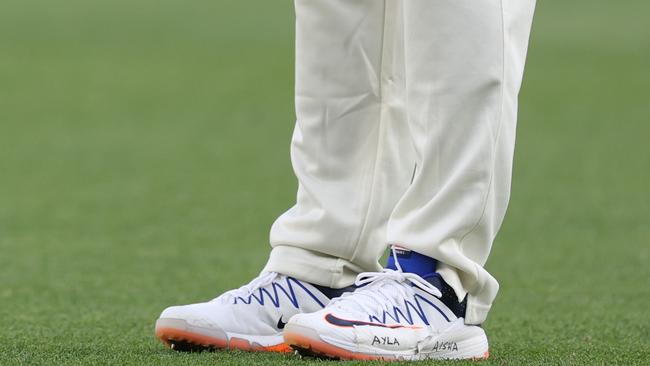
“Each case must be considered on its own facts and the ICC will take into account all relevant circumstances, including (as it sees fit): (a) the views of any other relevant team or individual; (b) the likely sentiment and response in the media to the message in all relevant countries; (c) whether the message is a ‘one-off’ or whether it is to be displayed for a longer period; (d) the purpose and impact of conveying the message,” the regulations continue.
“By way of example only, and without limitation, where the purpose of a message appears to be commemorative in nature (e.g. the use of a black armband or a poppy) or to serve a charitable purpose (e.g. to generate funds or awareness for a non-political charitable cause), it is more likely to be permitted; where a message appears to indicate support for a particular government, political party or individual, it is more likely to be prohibited. Where a request for approval is submitted to the ICC, the ICC shall be entitled to request such further information as it considers necessary before making its decision and to impose such conditions as it sees fit in providing its approval (as applicable).”
Cricket Australia has largely deferred to the ICC regulations, reiterating that while it supports the rights of players to express themselves it expects players to follow ICC rules.
Khawaja is due to arrive in Melbourne later in the week ahead of the second Test, which begins on Tuesday.
More Coverage
Originally published as Boxing Day Test: Usman Khawaja’s black armband protest not approved, reprimanded by ICC




